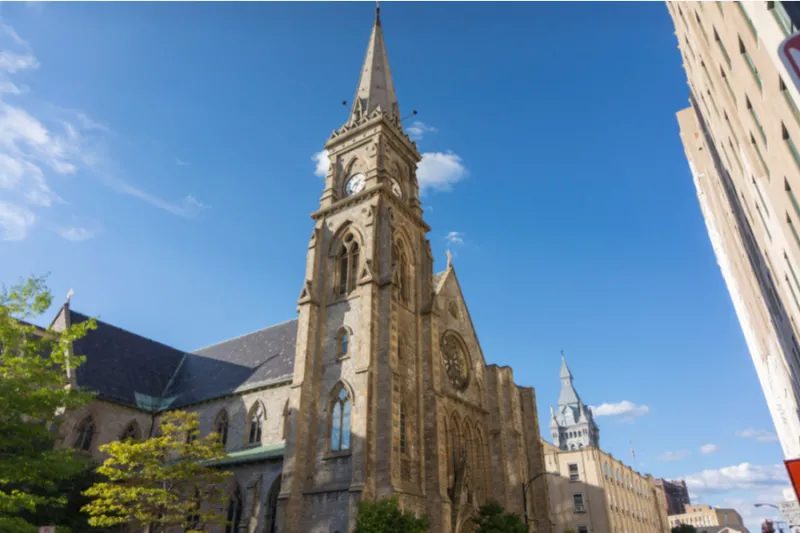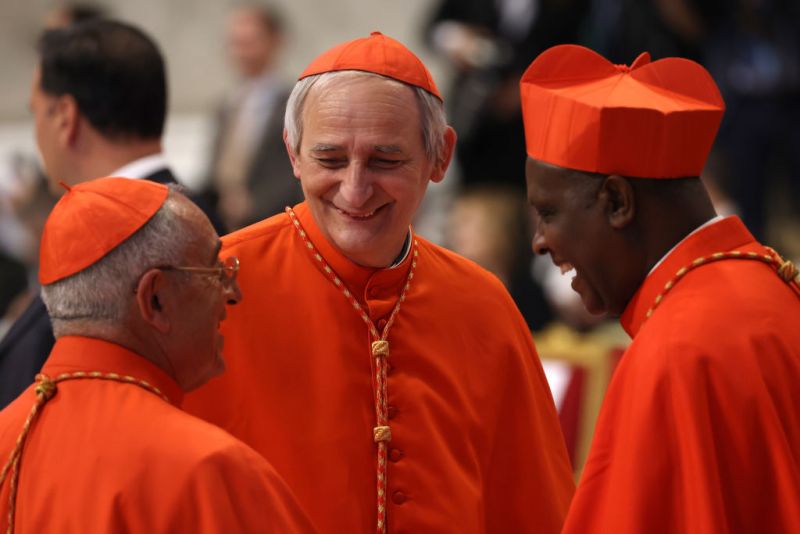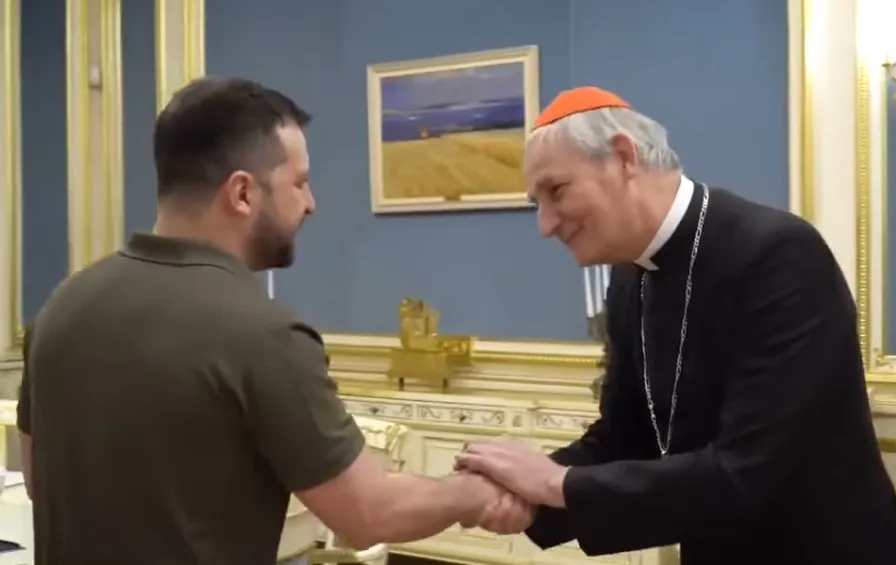
Buffalo, N.Y., Jul 12, 2021 / 11:11 am (CNA).
After diocesan officials discovered an unreported allegation of abuse, Bishop Michael Fisher of Buffalo has placed on leave an 88-year-old retired priest, Monsignor Leo McCarthy, who denies the accusation.
“Bishop Fisher wishes to emphasize that the decision to restrict Msgr. McCarthy’s priestly faculties at this time is in no way intended to indicate his guilt or is it a determination about the truth or falsity of the complaints,” the Diocese of Buffalo said.
An alleged victim, in a complaint under the Child Victims Act, claimed she was abused as a child in the 1980s at what the complaint names as St. Matthew parish. The diocese was not served the complaint but officials found the claim in a search of publicly filed complaints, WIVB News reports.
Although retired, Msgr. McCarthy still assists in parish ministry.
As a result of the discovery, Bishop Fisher decided to place the monsignor on administrative leave “pending a thorough investigation by the appointed independent investigator and a final determination by the Independent Review Board.”
The review board will appoint an independent investigator. The diocese has notified the Erie County District Attorney’s office and contacted the plaintiff’s attorney.
The plaintiff in the complaint is not willing to cooperate in the investigation.
The Diocese of Buffalo declared bankruptcy in February 2020 after more than 250 clergy abuse lawsuits were filed against it during a one year “lookback” window opened by New York’s 2019 Child Victims Act. The window, which closes Aug. 14, allows abuse victims to file abuse lawsuits long after their statute of limitations had ended.
If you value the news and views Catholic World Report provides, please consider donating to support our efforts. Your contribution will help us continue to make CWR available to all readers worldwide for free, without a subscription. Thank you for your generosity!
Click here for more information on donating to CWR. Click here to sign up for our newsletter.






Leave a Reply